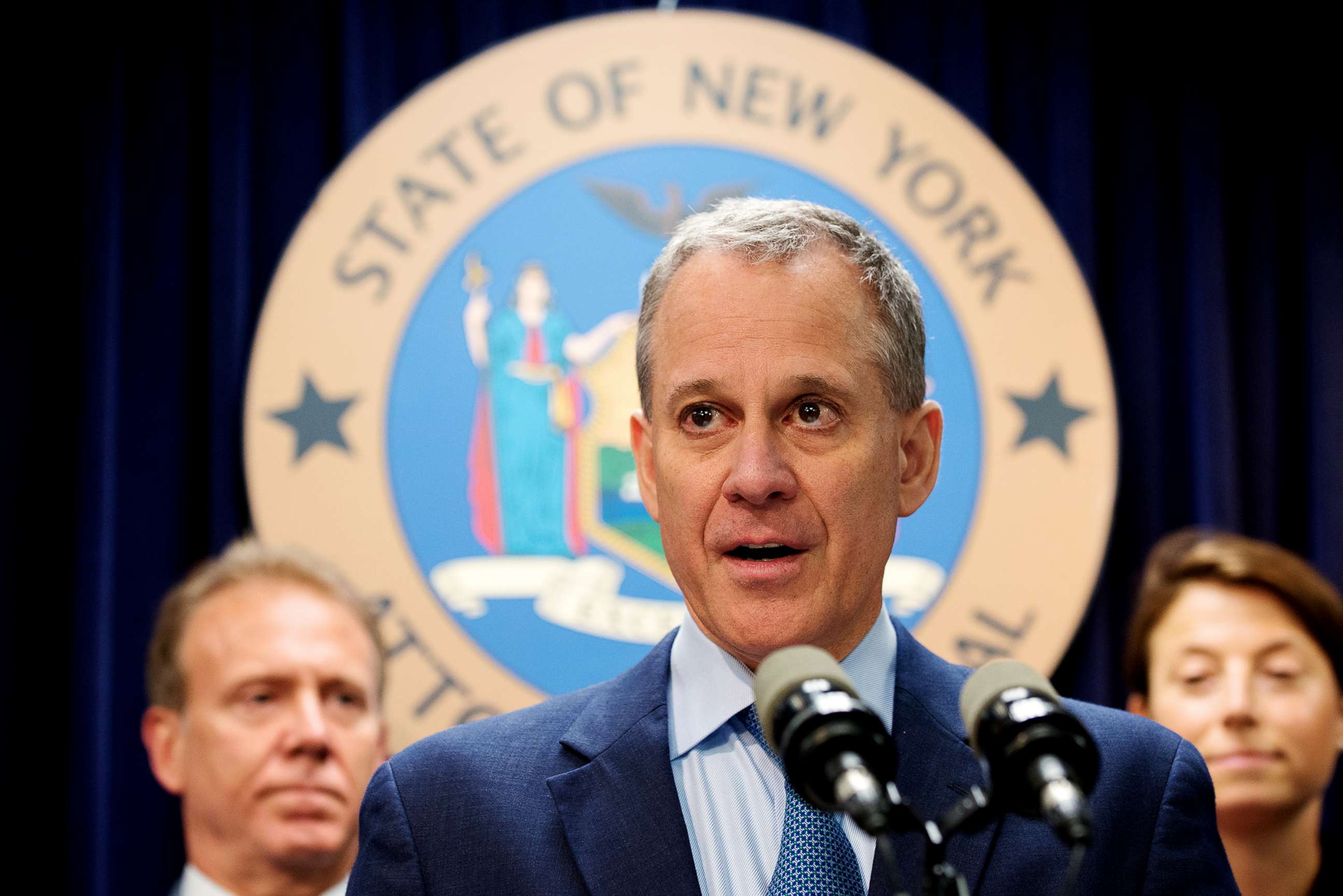Schneiderman called #MeToo movement 'extraordinary' in interview days before resignation
The New York attorney general resigned after facing abuse allegations.
Former New York Attorney General Eric Schneiderman didn't want to answer questions about the #MeToo movement in the days before abuse allegations against him were made public, according to an interview he gave to Alec Baldwin published Tuesday.
Schneiderman announced that he would be resigning hours after The New Yorker reported that he was allegedly physically abusive with four women. The story was published Monday, and Schneiderman formally stepped down the next day. Schneiderman has denied the assault claims.
Just four days before the allegations were made public, Schneiderman sat down for an interview with Alec Baldwin for his WNYC Studios podcast "Here's The Thing." It appears to be the final long-form interview Schneiderman gave while in office.
The full interview was published online late Tuesday night, and in the introduction, Baldwin states that there were "signs maybe something was amiss."
"His communications director requested -- surprisingly to us -- that we not mention the Harvey Weinstein case or #MeToo or the attorney general’s past relationships," Baldwin said in the introduction to the interview.
Later Wednesday, after this story's initial publication, the introduction to the podcast was changed and Baldwin's statements about the communications director were removed. A source in the Attorney General's office told ABC News that they disputed the characterization and that prompted its removal.
Baldwin told ABC News that “we got it wrong” with the first iteration of the introduction.
"Anything that was observation on my part, I wanted taken out,” Baldwin told ABC News.
"I wanted them to cut out the things that were opinions or observations so when I say that ‘something seems amiss’ that’s an observation on my part and that had to come out. That was a mistake we made,” he said, though a tweaked version of the line about the demands of the communications director was later reinserted.
The podcast's website now notes that the introduction had been changed.
Prior to leaving his post on Tuesday evening, Schneiderman counted moguls like Donald Trump and Weinstein among the targets of some of his office's investigations.
After the New Yorker piece was published Monday night, people directly involved in discussions about how to deal with the fallout told ABC News that both the newsmagazine and The New York Times had been racing for weeks to report and confirm the story. By last week, Schneiderman's camp was quietly talking about that ongoing reporting, sources said.
Baldwin did choose to bring up the topic of the #MeToo movement in the second half of the interview, however, noting that he was told of a "kind of an embargo on" the issue.
"Well, we have an investigation into the Weinstein companies that are involved with a variety of matters related to that. So, uh ... can't touch on that," Schneiderman told Baldwin.
"I mean, look, the movement is extraordinary. I think it's changing the conversation. It is a part of what I see is this moment of social transformation and of the emergence of a new political movement, but it's uh, you know, that's a whole other podcast," he said.

Schneiderman had been a vocal public supporter of the #MeToo movement in the past and was endorsed by the National Organization for Women's New York branch during the 2010 election.
Of the four women who spoke to The New Yorker, three said they were ex-girlfriends of Schneiderman and that he had abused them after drinking and often while in bed.
Schneiderman denies assaulting the women.
"In the privacy of intimate relationships, I have engaged in role-playing and other consensual sexual activity," Schneiderman said in the first statement he issued Monday. "I have not assaulted anyone. I have never engaged in non-consensual sex, which is I line I would not cross."
Later that day, Schneiderman released a second statement saying that the "serious allegations, which I strongly contest, have been made against me. While these allegations are unrelated to my professional conduct or the operations of the office, they will effectively prevent me from leading the office's work at this critical time."
ABC News' Josh Margolin contributed to this report.
Editor's note: This story has been updated to reflect changes in the podcast that were made after this story was published and to include comments from Baldwin's conversation with ABC News on Thursday.




